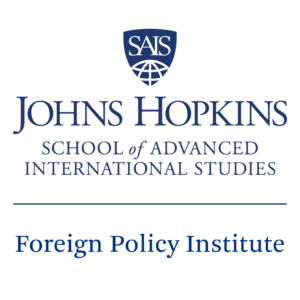Guest Comment – By Oliver Stelling
In September, China’s Foreign Minister embarked on a goodwill tour of Europe. Expectations were high that he would manage to repair strained ties with the bloc. It wasn’t meant to be. His charm offensive fell flat.
Wang made no concessions on Hong Kong or Xinjiang. In Oslo, he cast new doubt on the virus’ origin in China and challenged Norway not to allow the Nobel Committee to award Hong Kong’s protesters. And while in Germany, he warned the Czech Republic that there was a ‘heavy price to pay’ for dispatching a delegation to Taiwan. That ‘heavy price to pay’ has become a common line by Chinese diplomats, never failing to invoke public anger in their host countries and beyond.
Wang’s choice of words was a deliberate show of forcefulness aimed at his domestic audience. As long as China was a rising but still developing economy, such internal messaging bore little consequence for international relations. Now the bar is set higher. China has emerged as a knowledge economy, an incubator for scientific discoveries and technological advances that shape the modern world.
Not since the Cultural Revolution has China’s international image been lower across Europe, Canada, Australia and parts of Asia. Relations with the U.S. have seen the most dramatic decline due to President Trump’s erratic policies, the trade war and hostile rhetoric. However, Beijing’s latest geopolitical moves would have escalated tensions with any U.S. administration.
It remains unclear how all this could fall within the range of acceptable diplomatic outcomes. Even so, the Chinese Communist Party (CCP) keeps picking fights and lashes out against ‘the West’ when faced with pushback. Never mind that most flashpoints are right at China’s doorstep.
The contrast of Beijing’s successful containment of the coronavirus vis-à-vis America’s abject failure in dealing with Covid and multiple other domestic crises gives China an open goal and a great story to tell. It was a triumph that should have dominated the news for months. Instead Beijing’s diplomats chose to parade Trump’s debacles as proof of the waning authority of the West at large.
In some ironic way, the wolf warrior idioms resemble Trumpian projection – the claim of victimhood. Nothing suggests that they are readying to adopt a different style, one that outtrumps Trump and aligns diplomacy with the principles of the Asian Century China helped to create. The tone has become ever more assertive and messaging across internal and external communications remains incoherent.
Chances to convince foreign audiences are slim as the wolf warriors seem unable or unwilling to employ a foreign-targeted language. This has not gone unnoticed by Chinese thinkers. Efforts are underway to craft a more audience-centric, positive and cohesive narrative.
The stated objective of China’s Belt and Road Initiative’s (BRI) is to create a ‘Community of Shared Destiny’. While the BRI’s short term prospects are somewhat uncertain, its primary goal, first expressed by former CCP general secretary Hu Jintao, has become a staple of CCP messaging. It sounds visionary, benign and perfectly in line with China’s advocacy of multilateralism. It certainly has more appeal than Trump’s ‘America First’. All it needs now is content, validation and a clear roadmap.
The Institute for a Community with Shared Future at Communication University of China is working to fill that vacuum. If it manages to develop a cohesive narrative supported by policies that are acceptable to the world, a path to more global collaboration has been staked. What it must not become is a tool to more efficiently spread state propaganda.
There is no issue with China aiming to become the custodian and driver behind that shared future. But it does not own the future. Not even if one buys into Chinese exceptionalism. The often repeated line ‘China’s got five thousand years of history’ captures how China views the past and future in terms of centuries, not decades. The real-life implication is that China deserves special consideration, patience and extra respect.
“Somehow we are supposed to believe that China has more history than other places”, writes John Ross in a post for Camphorpress. His core point is that civilizations in other parts of the world precede China and that writing systems in Egypt and Mesopotamia predate Chinese writing by a thousand years. “The world’s first city, Uruk, in modern-day Iraq, dates back seven thousand years. China was first unified in 221 BC, a century after Alexander the Great had created the Hellenistic Empire, and just a few centuries before the zenith of the Roman Empire.”
Chinese history is without doubt long and fascinating. There’s no need to spin it unless the point is to disqualify critics for their alleged lack of knowledge about China. China has a rich history and culture and there is always more to learn, but that works both ways. In any case, this tactic inflicts less self-damage than outright discrediting entire countries.
When Hu Xijin, editor of China’s Global Times compared Australia to ‘gum stuck to the bottom of China’s shoe’, the global backlash was intense. Analysts, academics and global media including The Guardian, New York Times, Asia Times and the BBC concluded that China was denying other countries the respect it demands for itself.
While internal hawks appear to be winning, the wolf warriors seem to overlook that being discredited by Chinese propaganda outlets often serves to bump up one’s credibility. The same applies to China’s ‘Twitter diplomacy’.
A few years ago Beijing began to encourage diplomats, academics and media elites to use Twitter to engage a broader global audience and retell the China Story. A risky move that exposed many new users’ struggle to master an uncensored platform created to foster dialogue and open debate.
China’s embassy in Sri Lanka underscored that when complaining on Twitter, after its account was temporarily blocked, that it had been denied “freedom of expression”. And just recently, China’s Ambassador to the U.K. tweeted: “If you choose to be not our friend or partner you will have to bear the consequences.”
The list of undiplomatic tweets is long, including one diplomat’s retweets of a Texas woman’s random shower thoughts about the origin of Covid19, and conspiracy theories propagated by globalresearch.ca. – a fringe site that also claims that Osama Bin Laden was not killed by a US Navy SEAL team in 2011 but died in 2001.
The wolf warriors do not always seem to know whose voices matter and which ones are discredited. And if they do but don’t care, the signal this sends is the same: truth, reputation and trustworthiness of sources don’t matter.
While embracing a markedly different tone and style, their narrative is shaped by tropes and clichés from a bygone era. Beijing may think little of ‘intangibles’ such as perceptions. Who needs soft power when you have already proven to possess the vision and ambition to become a global leader in science, technology and more? But that seems out of touch with the shared destiny.
This cannot be in China’s interest and certainly not in the world’s either. If Beijing feels misunderstood and wrongly accused, it must ask itself: ‘Why do they mistrust us so much?’
According to Pew Research’s latest survey, a median of 34% across the 13 countries surveyed believe the U.S. is the world’s leading economic power, while 48% say the same of China. That shows that economically China is on the right trajectory. What remains is the building of trust which depends on a more audience-centric language.
There is a precedent for successfully engaging the world on ‘their terms’ and reaping the benefits – the run up to the 2008 Beijing Olympics. China’s image had never been better. A course correction today would send just the right message ahead of the Communist Party’s upcoming centennial.
The writer is a senior communications specialist, with a particular focus on emerging markets across Asia and the Middle East.


